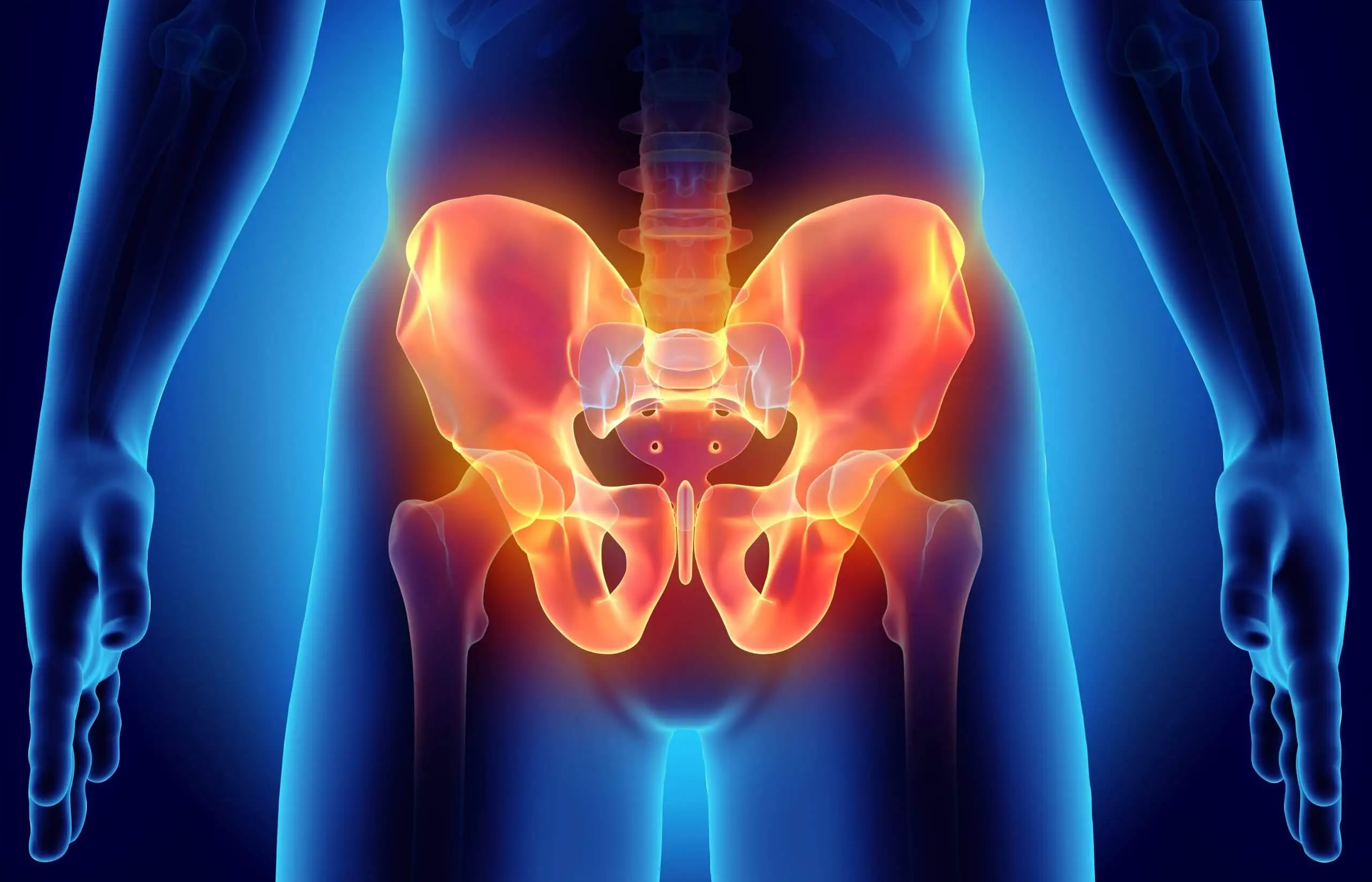Back
Pelvic Pain
By Shannon Strauch, PTA, STMT-1 on 5/30/2024

Pelvic pain can have various causes, and it's important to consider a range of factors that could be contributing to your discomfort. Here are some common reasons for pelvic pain in both men and women:
Gynecological Issues
Conditions such as endometriosis, adenomyosis, menstrual Cramps (Dysmenorrhea), ovarian cysts, pelvic inflammatory disease (PID), and uterine fibroids can cause pelvic pain.
Urological Issues
Prostatitis (Men): Inflammation of the prostate gland can lead to pelvic pain.
Benign Prostatic Hyperplasia (BPH) (Men): An enlarged prostate can cause discomfort in the pelvic area.
Bladder Disorders: Conditions like bladder stones or bladder cancer can cause pelvic pain.
Urinary Tract Issues: Urinary tract infections (UTIs), interstitial cystitis (painful bladder syndrome), and kidney stones can lead to pelvic pain.
Gastrointestinal Issues
Conditions like irritable bowel syndrome (IBS), constipation, inguinal hernias, ulcerative colitis, diverticulitis, or inflammatory bowel disease (IBD) can cause pain in the pelvic area.
Pregnancy-Related Changes
During pregnancy, the body undergoes various changes that can lead to pelvic pain, such as ligament stretching (round ligament pain) and pressure from the growing uterus.
Musculoskeletal Problems

Pelvic Fractures: Trauma or accidents leading to fractures in the pelvic bones.
Muscle Strain: Overuse or injury to the pelvic muscles can cause pain.
Pelvic Floor Dysfunction: The muscles and connective tissues of the pelvic floor can become tight, weak, or injured, leading to pain and dysfunction.
Hypermobility Syndromes: Conditions like Ehlers-Danlos syndrome (EDS) can cause joint hypermobility and instability, which may lead to pelvic pain due to the increased strain on the connective tissues and joints.
Scar Tissue (Adhesions): After surgeries or infections, scar tissue can form and bind organs together, causing pain and restricted movement.
Fibrosis: Thickening and scarring of connective tissue, often as a result of inflammation or injury, can cause pelvic pain.
Ligament Strains or Sprains: Injury to the ligaments that support the pelvic organs can lead to pain and instability.
Pelvic Organ Prolapse: Weakness in the connective tissues supporting the pelvic organs can cause the organs to descend, leading to pain and discomfort.
Pelvic Girdle Pain: Inflammation or injury to the sacroiliac joints or pubic symphysis, where the pelvis meets the spine and pubic bone, can cause pain in the pelvic area.
Chronic Pelvic Pain Syndrome (CPPS): Often involves a combination of musculoskeletal, connective tissue, and nerve-related pain, contributing to chronic discomfort in the pelvic region.
Myofascial Pain Syndrome: Trigger points and tight bands in the connective tissue (fascia) and muscles can cause referred pain to the pelvic area.
Nerve-Related Issues
Sciatica: Compression or irritation of the sciatic nerve can cause pain that radiates to the pelvic area.
Pudendal neuralgia: where the pudendal nerve is irritated or compressed, can result in pelvic pain.
Nerve Entrapment: Conditions like obturator or ilioinguinal nerve entrapment can cause pelvic pain.
Chronic Pain Conditions
Fibromyalgia: This chronic condition can cause widespread pain, including in the pelvic area.
Chronic Fatigue Syndrome: Often associated with widespread pain, including pelvic pain.
PGAD: Persistent Genital Arousal Disorder, also known as restless genital syndrome, is a rare condition that causes unwanted genital arousal without sexual stimulation or desire. PGAD can last for days or weeks and is usually not relieved by orgasm
Other Medical Conditions
Pelvic Congestion Syndrome: Varicose veins in the pelvis can lead to chronic pelvic pain.
Cancer: Cancers of the reproductive organs, bladder, colon, or rectum can cause pelvic pain.
Psychological Factors
Stress and Anxiety: Psychological stress can manifest as physical pain, including in the pelvic area.
Depression: Chronic pain conditions are often associated with mental health issues that can exacerbate pain perception.
As you can see, there are many reasons as to why you can experience pelvic pain. If you are experiencing pelvic pain, it is crucial to seek medical advice to determine the exact cause and appropriate treatment. A Pelvic Floor Therapist is trained to examine, diagnose and treat many of these pelvic pain issues. Looking to optimize your well being with pelvic floor physical therapy? Reach out to us at Pelvic Health Center in Madison, NJ to set up an evaluation and treatment! Feel free to call us at 908-443-9880 or email us at receptionmadison@pelvichealthnj.com.
Read More:
How Chronic Pelvic Congestion in Men Contributes to Prostatitis By Shannon Strauch, PTA, STMT-1 on 12/11/2024 How lymphatic issues can cause symptoms of prostatitis Prostatitis and Tight Pelvic Floor Muscles: A Comprehensive Guide By Shannon Strauch, PTA, STMT-1 on 12/10/2024 How a tight pelvic floor can be the reason for prostatitis symptoms
Are you ready to live pain free?
Request An Appointment